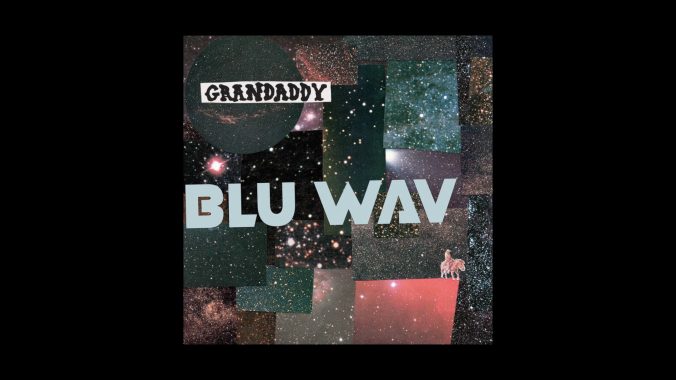Grandaddy Fail to Capture Past Highs on Blu Wav
Singer-songwriter Jason Lytle gets quietly introspective on his latest collection of uneven, ambling country tunes.

Grandaddy have always been indie rock’s answer to steampunk—somehow wholly contemporary, obsessed with the future and tethered to the past. Jason Lytle’s songwriting has always been as concerned with the beauty of the natural world as he is a fictional android poet named Jed—with life under the freeway like distant planets, with a gently-strummed acoustic guitar like a mesmerizing synth hook. Ever since Grandaddy formed in Modesto, California back in the early 1990s, the band have been perpetual underdogs. Once holding the distinction of being one of a half-dozen bands deemed the “American Radiohead,” Grandaddy eventually landed closer to the younger cousin of Pavement or Built To Spill. When they have broken through, it’s been brief and unexpected—like when their 1997 single “A.M. 180” was featured five years later during a pivotal scene of Danny Boyle’s 28 Days Later.
It’s been 27 years since Grandaddy’s debut record and, largely, they have retained what has always made them as charming as they are difficult to pin down. Though their latest LP, Blu Wav, marks only the second record Lytle has released as Grandaddy in the last 18 years, there remains a subtle arc to his discography, one that he continues here with a few key, and admittedly uneven, changes. “There hasn’t been one song, in the hundreds of songs that I’ve released over the years, that’s had one note of pedal steel on it,” writes Lytle in press materials accompanying the record—a fact he conclusively changes here, not only embracing the instrument but letting it shape the record in its entirety.
Grandaddy have a history of being both highly specific and difficult to describe in a way that doesn’t sound very general. Their sound is one of subtleties rather than extremes, never reshaping a genre or style, but finding nuances within it. Here, a kind of classic, timeless country is clearly Lytle’s north star, a place where quaint heartbreak and sullen lovesickness are the coin of the realm. Now, on its face, a pseudo-country Grandaddy record chalk full of pedal steel and yearning checks more than a few boxes for this writer. And yet, it gives me no pleasure to report that this might be the very thing holding Blu Wav back from approaching the highs of Lytle’s best work.
-

-

-

-

-

-

-

-

-

-

-

-

-

-

-

-

-

-

-

-

-

-

-

-

-

-

-

-

-

-

-

-

-

-

-

-

-

-

-

-








































